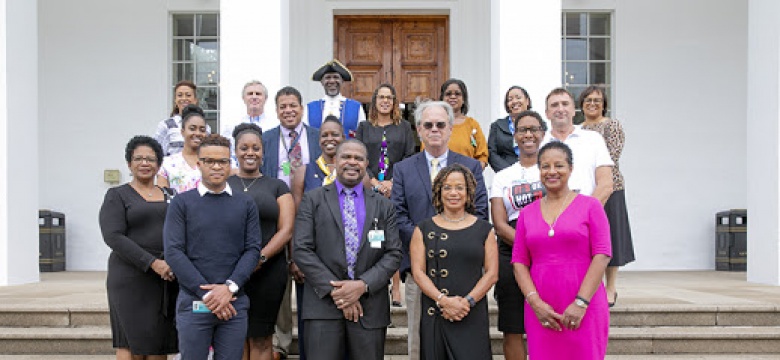
Statement from The Minister of Health, the Hon. Kim Wilson, JP, MP at World Mental Health Awareness Day 2019
Today, October 10th is World Mental Health awareness day. Today we focus our attention on mental health, but as many of us know, one day of the year is not enough. We need to start seeing every day as mental health awareness day.
While it is important to stop and recognize the international observance, there are things that we can do every day for ourselves and others to promote mental health.
The theme of mental health awareness week 2019 is mental health promotion and suicide prevention.
The World Health Organization has found that globally, suicide is the principle cause of death among people aged 15 to 29.
But it is not something that only impacts young people.
Suicide rates among individuals 65 and older are still the highest for both men and women in almost all the regions of the world.
And it is something we deal with here in Bermuda too. Although by international comparison our suicide rates are among the lowest for high-income countries, based on figures from the Bermuda Hospital Board, over the last 17 years there were between 15 and 39 discharges from King Edward per year after an attempted or suspected suicide attempt. And between 2006 and 2015 there were 16 known suicides.
These events frequently don't happen out of the blue. And to develop a suicide prevention strategy, we need to look at the opportunities there are to intervene.
Ninety per cent of people who die of suicide have a clinical mental illness according to the World Health Organization.
On inpatient wards, suicide can be prevented by having good observation on the wards, comprehensive staff training, safe staffing levels and encouraging adherence to treatment to more effectively treat symptoms of mental illness.
The Mid-Atlantic Wellness Institute includes an assessment of suicide risk during all new admissions, and has developed a crisis safety plan which assists services users to access support when they notice the emergence of their self-identified warning signs.
In the community, the World Health Organization found that 75% of people who complete suicide had contact with their GPs in the last 12 months. More importantly, suicide prevention training for GPs is effective at reducing the risk of future suicide by 50%.
One of the continuing medical education training sessions at BHB this week was specifically for community physicians - the topic being 'Suicide Prevention in Primary Care: Screening and Treatment.'
BHB lso offers a one day training for businesses wanting to improve employee understanding of mental health. In addition, MWI staff also respond to requests for awareness presentations and education in the community.
Individually, there is more we can do and must do to support our own mental health and that of our loved ones. One of the WHO recommendations on suicide prevention is improving mental health literacy in the community so people can identify mental distress and mental illness earlier, helping individuals get more effective help.
Warning signs can include:
- Verbal signs such as "I can't go on", "nothing matters any more" or "I'm thinking of ending it all" - take these seriously if you hear them.
- Becoming depressed or withdrawn.
- Marked changes in behaviour, attitudes or appearance.
- Getting affairs in order and giving away valued possessions.
- Suffering a major loss or life change.
These may or may not indicate someone is suicidal - but the key highlight is that if you are worried - ask. That can be the opening that someone needs to talk.
And know there is help you can access. You can speak to your GP. There are employee assistance programmes provided by many companies that offer counselling. There are private counselling and psychotherapy services available in the community.
The Mid-Atlantic Wellness Institute offers a wide range of services and therapies. MWI also provides a walk-in service for people in crisis Monday to Friday 8am to 5pm, and a mental health crisis line - 239-1111 - that can be called around the clock if you are in urgent need of help.
So today, if nothing else, start with the simple questions about how we are feeling and managing in our lives. Think about this for yourself. And ask someone else in your life - especially someone you might be concerned about. And if the answer is ‘not so good…’ then take some time to make a difference.
Thank you
